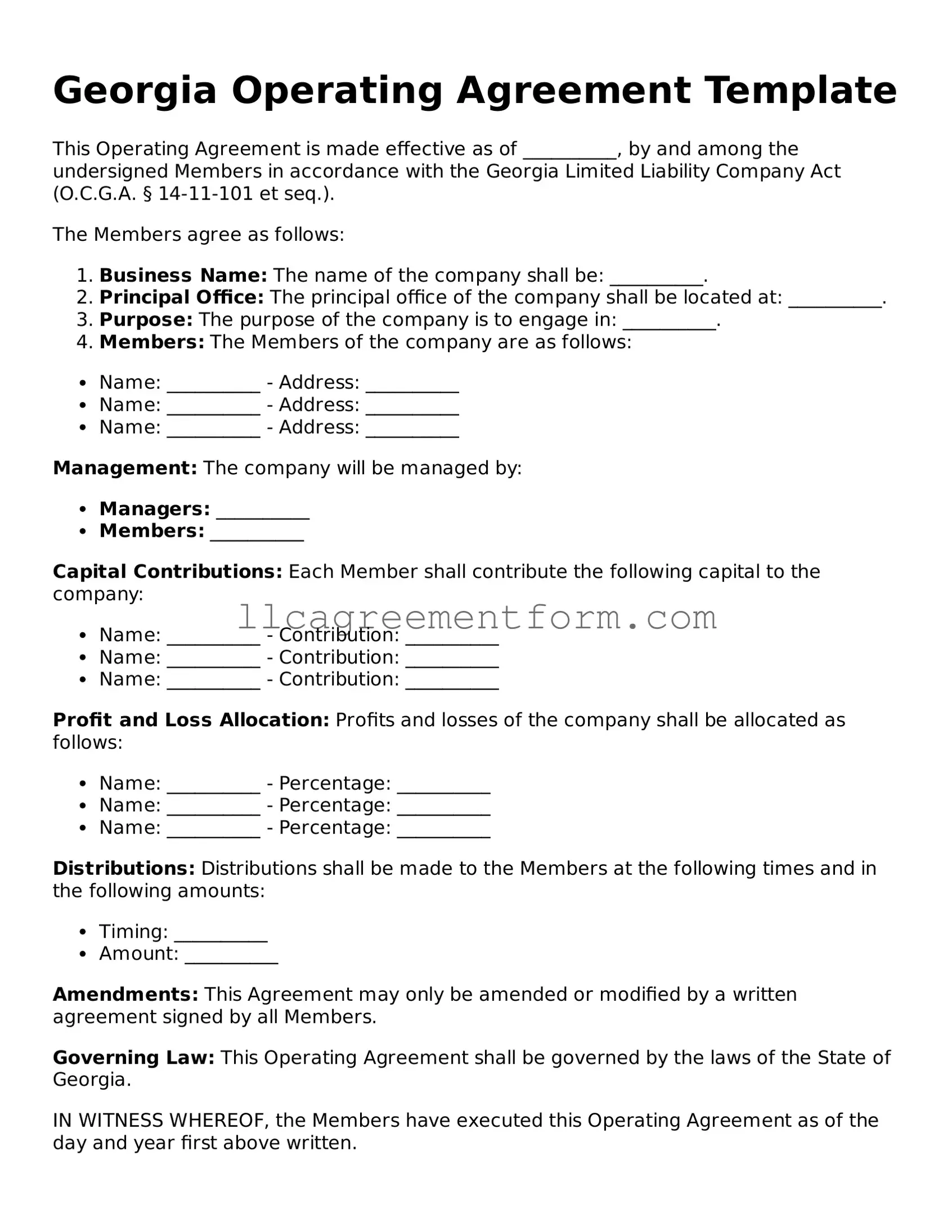Free Operating Agreement Document for Georgia
The Georgia Operating Agreement form is a crucial document that outlines the management structure and operational procedures of a limited liability company (LLC) in Georgia. This agreement helps define the roles and responsibilities of members, ensuring clarity and reducing potential disputes. To effectively establish your LLC's framework, consider filling out the form by clicking the button below.
Get Operating Agreement Now

Free Operating Agreement Document for Georgia
Get Operating Agreement Now
Don’t stop halfway through your form
Finish Operating Agreement online with fast editing and easy download.
Get Operating Agreement Now
or
▼ PDF
